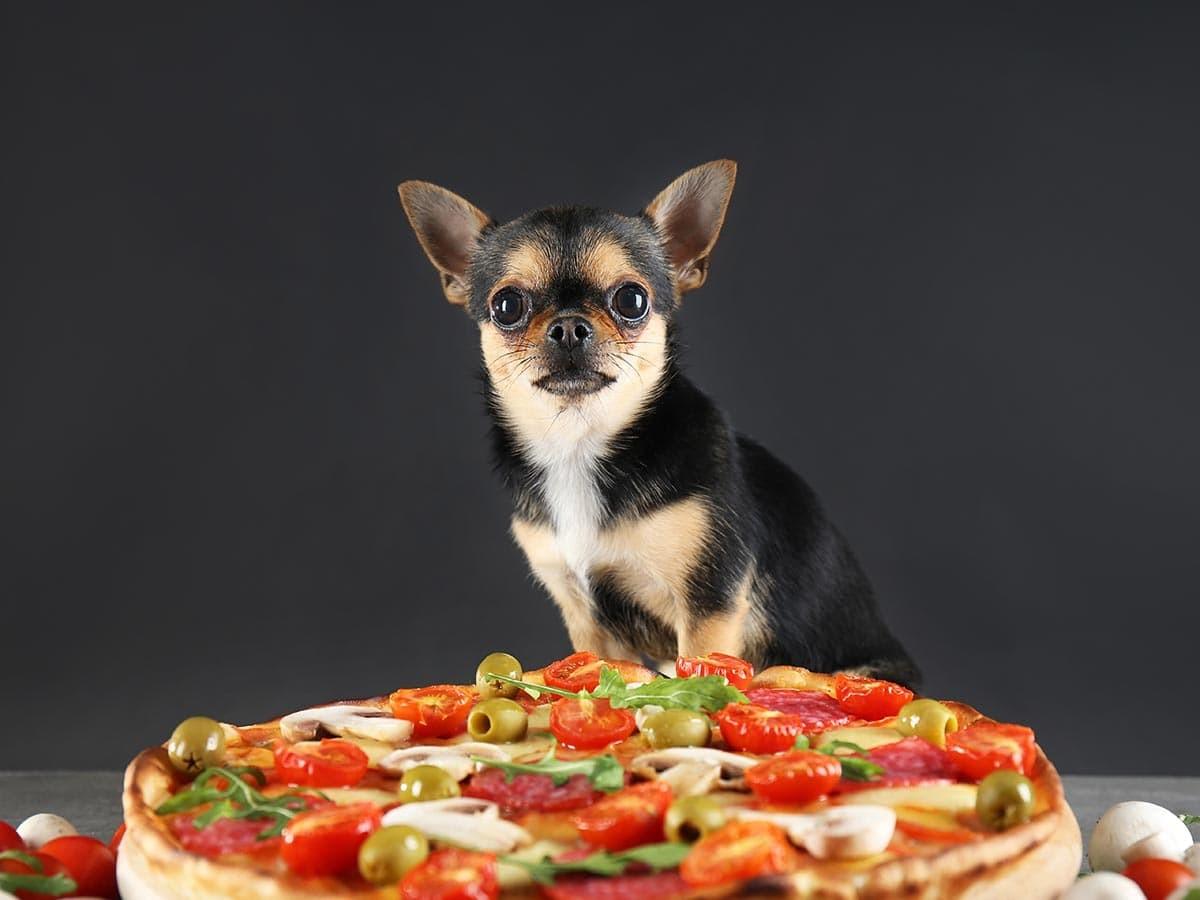Pepperoni is a beloved pizza topping, but can dogs eat pepperoni? Simply put, the answer is a resounding no. Whether it's spicy jerky, pepperoni sticks, or a slice of pepperoni pizza, it's best to keep it away from your dog. Pepperoni may seem like a tasty treat, but it poses several risks to your pet's health.
Why Pepperoni Is Bad for Dogs
There are several reasons why pepperoni is not a safe snack for dogs:
High-Fat Content
Pepperoni is high in fat, and can eventually lead to pancreatitis in dogs. Pancreatitis is a painful inflammation of the pancreas, a vital organ involved in digestion. Symptoms of pancreatitis can range from mild vomiting and diarrhea to severe abdominal pain, loss of appetite, and even life-threatening complications.
Spices and Seasonings
Pepperoni is often seasoned with spices like garlic and onion powder, both of which are toxic to dogs. These ingredients can damage red blood cells and lead to anemia, a condition characterized by a decreased ability to carry oxygen throughout the body. Other common pepperoni spices, like paprika and chili pepper, can irritate your dog's digestive system, causing discomfort and digestive upset.
Salt Toxicity
Pepperoni is also very high in salt, which can lead to salt poisoning in dogs. Symptoms of salt toxicity include excessive thirst, urination, vomiting, diarrhea, and in severe cases, neurological problems like tremors or seizures.
What Happens if My Dog Eats Pepperoni?
If your dog accidentally eats a small amount of pepperoni, they may experience mild gastrointestinal upset like vomiting or diarrhea. However, consuming larger amounts or repeated exposure to pepperoni can lead to more serious health problems, including pancreatitis, salt toxicity, and anemia.
Pepperoni Toxicity in Dogs
Pepperoni toxicity in dogs refers to the adverse effects that can occur after consuming pepperoni. These effects can vary depending on the amount ingested and the individual dog's sensitivity. If you suspect your dog has eaten pepperoni, monitor them closely for any signs of illness and consult your veterinarian if you have any concerns.
What to Do if Your Dog Eats Pepperoni
If your dog eats pepperoni, it's important to act quickly. Here's what you should do:
Assess the amount ingested: Determine how much pepperoni your dog ate and if it was plain or seasoned.
Contact your veterinarian: Call your veterinarian immediately and inform them about the situation. They can advise you on the best course of action based on your dog's size, health history, and the amount of pepperoni consumed.
Follow your veterinarian's instructions: Your veterinarian may recommend inducing vomiting, administering activated charcoal to absorb toxins, or monitoring your dog closely for signs of illness.
Alternatives to Pepperoni for Dogs
Instead of offering your dog pepperoni, consider these healthier and safer alternatives:
Lean-cooked meats: Plain-cooked chicken, turkey, or beef are great sources of protein for dogs.
Fruits and vegetables: Many fruits and vegetables, like carrots, apples, and blueberries, can be offered as safe and healthy treats for dogs.
Commercial dog treats: Choose high-quality dog treats that are specifically formulated for your dog's size and breed.
Key Takeaways
While pepperoni may be a tempting treat for dogs, it's important to remember that it poses several health risks and is not recommended for canine consumption. By choosing healthier alternatives and avoiding pepperoni altogether, you can ensure your furry friend stays happy and healthy.
Remember, if your dog accidentally eats pepperoni, contact your veterinarian immediately for guidance and advice.

As Spot’s resident cat enthusiast, I am dedicated to researching and sharing information that helps pet owners take the best care of their pets. Pet ownership comes with it’s share of challenges, but my goal is to help make this journey easier.
*Jan 2019 to Aug 2024 Spot Pet Insurance Services, LLC claims data.
Patterdale, Sassafras. "Can Dogs Eat Pepperoni?" American Kennel Club, 08 May 2025, https://www.akc.org/expert-advice/nutrition/can-dogs-eat-pepperoni/.
"Can Dogs Eat Pepperoni? 5 Health Risks for Dogs." MasterClass, 22 Mar. 2022, https://www.masterclass.com/articles/can-dogs-eat-pepperoni.
The information presented in this article is for educational and informational purposes only and does not constitute or substitute for the advice of your veterinarian.












